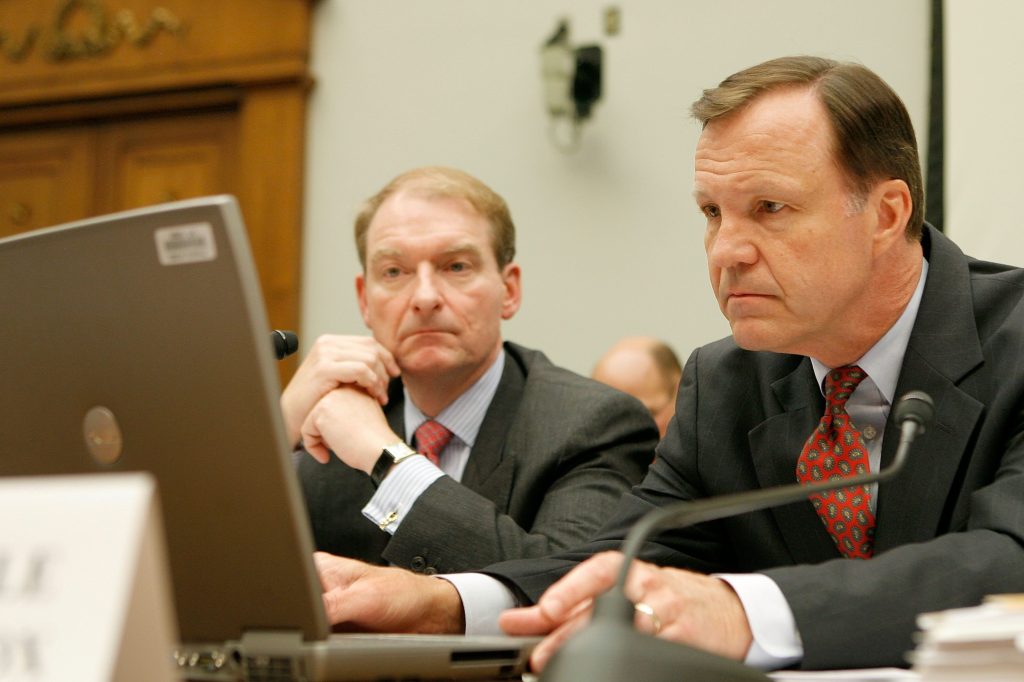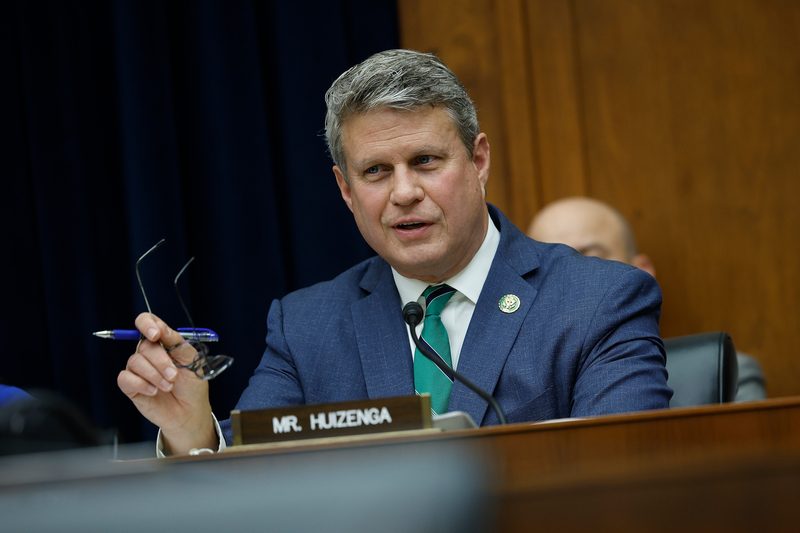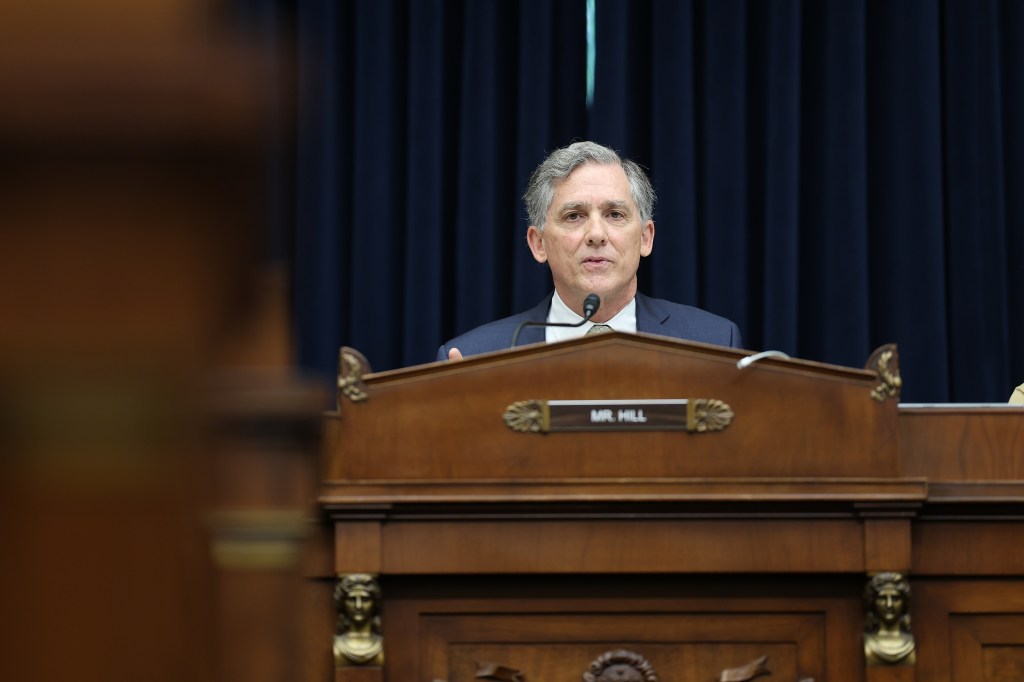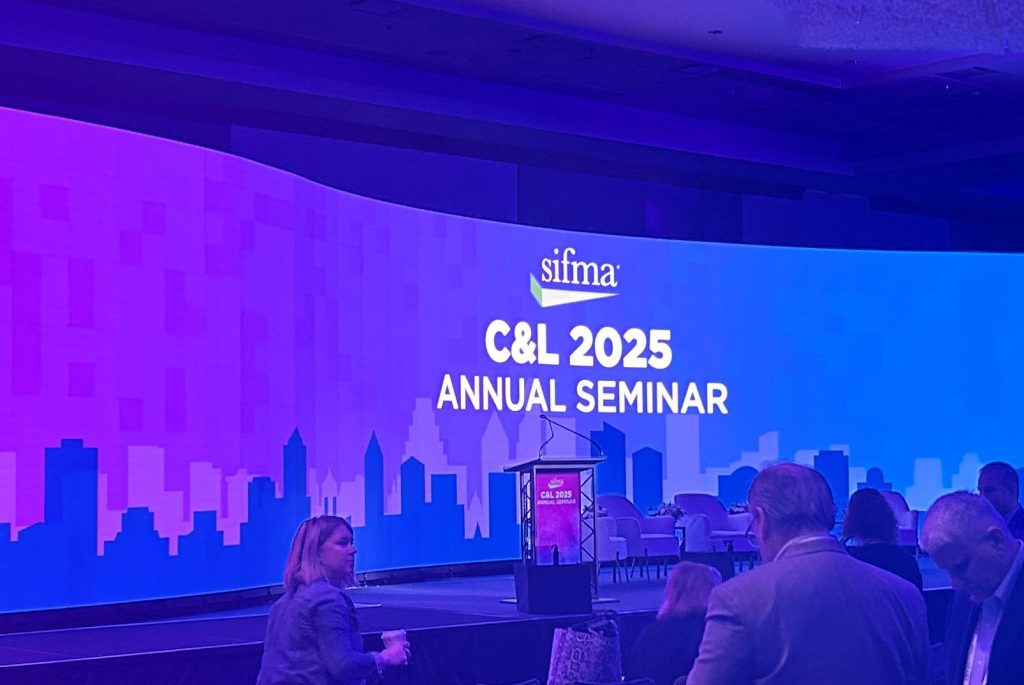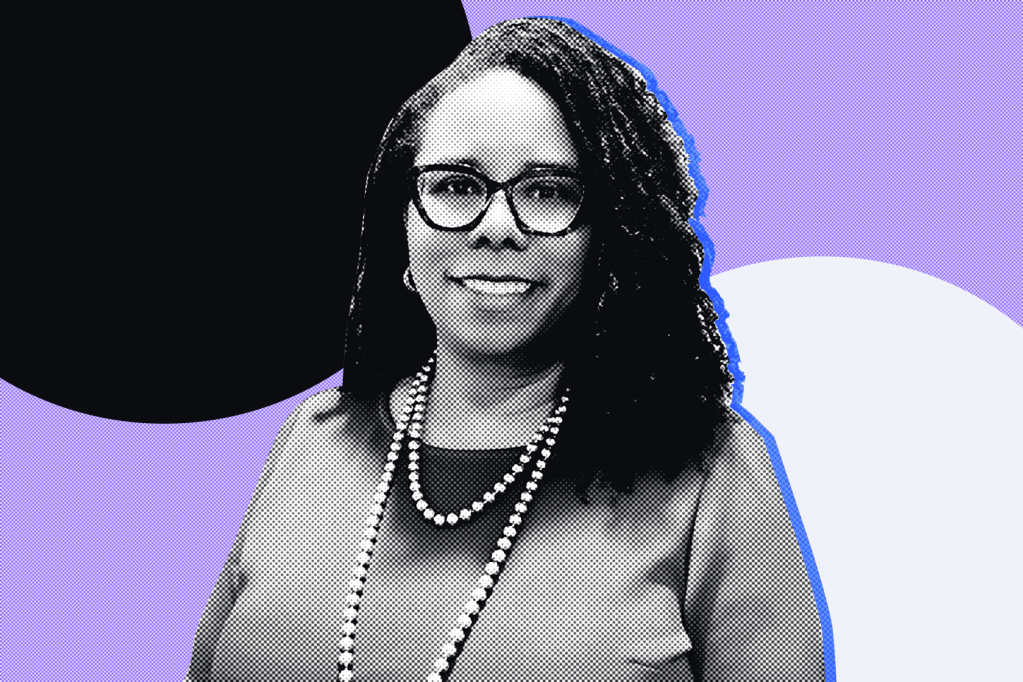This is a transcript of the podcast CCO Courtney Reid is optimistic about compliance in 2025, Courtney tells GRIP’s US Content Manager Julie DiMauro about working with a board of directors, using effective training, and the evolving skills needed to be in compliance today.
[INTRO]
Julie DiMauro: Greetings everyone. And welcome to a Global Relay Intelligence and Practice, or GRIP, podcast. I am Julie DiMauro, the US content manager for GRIP here in New York. GRIP is a service that features a daily website of articles on a variety of compliance and regulatory topics, plus podcasts and other deeper dives into compliance trends and best practices. You can find the service at grip.globalrelay.com. And we hope you’ll connect with GRIP on LinkedIn.
I am thrilled to announce that today’s podcast session features Courtney Reid, Chief Compliance Officer for MML Investor Services LLC, Mass Mutual’s retail broker dealer and investment adviser. Courtney, would you please more fully introduce yourself to our listeners right now?
Courtney Reid: Sure. And thank you so much, Julie, for the invitation. I’m very excited to speak with you all today. So yes, I am the Chief Compliance Officer for MML investors. We also affectionately call it MLIS here at Mass Mutual. It is the retail dealer investment advisor for Mass Mutual. And we support our 7,000 plus agency field force with Mass Mutual. I’ve been with Mass Mutual for the past … t’ll be nine years in February. I can’t believe it. It feels like yesterday that I walked through the doors here.
We are headquartered here in Springfield, Massachusetts, which is where I’m sitting right now. And I will say that I’ve been the CCO for MLIS for the past three years. Prior to that, I joined Mass Mutual as a regulatory enforcement attorney.
So my background is primarily as a lawyer. I’ve been a lawyer for the past, I hate to date myself, but about 22 years. And doing a variety of things, but primarily in litigation, for financial services through working with a, from a private practice perspective, but also with other firms. So starting out my career in Minneapolis, Minnesota, and making my way back to the east coast here at Mass Mutual in Massachusetts. So that’s a little bit about me.
Julie DiMauro: Fantastic. Now, let me talk to you about your compliance role at Mass Mutual. We talk a lot in podcasts and in our articles about tracking regulatory change. And there’s been certainly a lot of it in the past several years. It has been cited as a top challenge by compliance officers. Has it been for you and your team right now, or about the same? And how have you managed it in the past few years if actually you did feel the onslaught, if it did feel heavy-handed?
Courtney Reid: Sure. I think that’s a great question, Julie. I will say that certainly I would consider it a top challenge. I think, regardless of that, I think keeping abreast of regulatory developments really is a critical function for any compliance program. And so when you think about it, by regulation, our roles as compliance officers are to really ensure that our policies, procedures, and controls are reasonably designed to achieve compliance with the applicable rules and regulations. That’s table stakes. So you have to stay connected to the developments in order to do that effectively.
The challenge here has been the pace of regulatory change. And for example, especially in recent years, so for example, when you think about, I think it was last year, and up until this year, the SEC had dozens of rule proposals pending at once. And then you had the Department of Labor rule proposal at the, on the other end of the spectrum. And then FINRA has their own rule proposals. The big one for us this past year was around the remote worker rules on top of staying abreast of state rule proposals. So there’s a lot of different regulations in the pod.
And so staying informed and creating a plan for each of these to evaluate the impact to your business can really consume a great deal of resources. But I would say it’s a necessity. One thing that I found to be very helpful has been staying in touch with law firms. You get like the really nice law firm notices that get sent. Regulatory benchmarking groups has been absolutely a huge resource. And then, you know, participating on industry group calls. So I would say that’s been very helpful with keeping up with the pace.
Julie DiMauro: Absolutely. You know, I have to ask, and you can certainly answer in a very general way, but given regime change, do you expect to make huge changes or really almost none? Because a lot of what you do is still going to be tracking the rules coming out of these various agencies and the agencies that you’re answerable to. Do you expect any sizable changes in your approach?
Courtney Reid: I don’t think so. I mean, I think to your point, a lot of what we do with respect to regulatory tracking is it’s going to be the same. It’s monitoring what regulations come out when they come out, certainly looking at different, you know, purveyors of those of those regulations. I would say that perhaps the pace might change and we might see, you know, different regulations coming from different bodies. So, for instance, while we had a lot from the SEC, it may shift to seeing more from the states. So we just have to be ready to pivot and be agile based on which entity decides that they want to be forthcoming with rule amendments.
Julie DiMauro: That makes total sense. You and I, Courtney, had talked about training the importance of it, and it’s been specifically mentioned in enforcement actions as a feature of a truly effective compliance program. What are your ideas in terms of formats for training and how do you get people motivated to take the training your business offers in a serious way?
Courtney Reid: Yes. So first, let me make my plug here because and you’ll understand why in a moment. So I’m going to make a plug about the Securities Industry Regulatory Council and Continuing Education I currently serve on. And so we are always trying to create greater visibility for the council itself. It’s administered by FINRA, but it’s not a FINRA committee. And essentially it provides advice and guidance to FINRA and the other self-regulatory organizations on the development, implementation, and ongoing operation of the Securities Industry and Continuing Ed programs. So think about your firm element that’s done in-house that refers to a lot of what you’re talking about in your question, Julie, but also the regulatory element that is rolled out by FINRA.
So and it also, as an aside, is responsible for advising on the Maintaining Qualifications program. So this council itself is comprised of industry members from broker dealers that really represent a cross-section of firms. So both large and small firms, but also retail and non-retail like your wholesale or limited purpose broker dealers, etcetera. And so we also have representatives from self-regulatory organizations and liaisons, so from NASA, your state regulatory collective and also the SEC.
So I make this plug because we are always interested in getting industry participants on the council, as well as creating visibility for a lot of the resources that we have put together to help firms as they create their training programs. So as part of the work on this council, I was invited to work with the FINRA content committee, where we were designing training for future regulatory element and what was really intriguing, and this is where it gets back to your question. And I think effective in that process was creating training based on personas and like using scenarios based on real-life situations and kind of overlaying how those rules should apply.
So for any of your listeners, for example, who have taken their Reg BI training and the regulatory element from this year, that’s really an example of that personas based, that sort of takes it from a, you know, here’s the rule and like a really dry, boring training, but like taking it and applying it to a real life scenario where you can kind of walk through the day and the life of a financial representative and kind of understand like here’s how the rule applies to those particular facts scenarios. I thought it was incredibly effective and frankly, I got a lot of positive feedback from individuals at my own company who had taken the training and really raved about it and said, look, I think we need to incorporate this type of style more into our own firm element training that we roll out.
So I would say, just stepping back, you know, holistically, I think training as a whole is just really an important feature of any firm’s ability to show that they are helping their employees or registered representatives be compliant with the regulations. Like that’s something that you produce first and foremost when you are questioned about what are the things that you do from a supervision aspect. And so you really want to make sure that the individuals taking the training are not just clicking through, they have to be engaged.
And so this is where I think being creative and the content and the delivery of the training helps with that motivation. And although my answer, like really kind of primarily centered on regulatory required training, I think firms should not forget about the product specific training as well, which I think is very helpful for demonstrating that your rep has the knowledge and understanding of how a particular product works in order to provide an adequate basis for any recommendations that they make.
Julie DiMauro: Absolutely. Thank you for all that. And very interactive training, practical training, like you said, sometimes the more product- and service-specific is needed. And I also think, sometimes training doesn’t need to be hugely formal, you can take an enforcement action that has affected one of your competitors and you can use it as training.
Courtney Reid: Absolutely, absolutely. And we do a lot of that as well. I mean, I think it’s definitely something that’s very helpful for a compliance program to just look at, as I said, those real life examples and really see how the rule applies and think about, OK, as I’m doing an analysis on my own product list or on our own sales practices. Like what are learnings that we can glean.
Julie DiMauro: Perfect, thank you. Just to move to something else that you and I had discussed, Courtney, was access to the board and the critical importance of that for the CCO. You know, ideally that person has access to the board of directors or some committee they’re in. How would you advise CCOs in terms of having such access to be able to communicate the evolving nature of your business’s risk to them? And getting the board members to appreciate those risks?
Courtney Reid: So I think we have to start with the regulatory obligations with your interactions to the board. So, FINRA, rule 3130 is pretty clear on its expectations that the chief compliance officer is supposed to advise senior leadership and the board on the state of the firm’s supervisory controls. And to work with the chief executive officer to certify whether these controls are reasonably designed to achieve compliance with the applicable laws and regulations. And so that rule requires CCOs to also share that certification with the board of directors.
And so as part of that analysis as CCO, you really need to be staying apprised of regulatory developments, as we have talked about earlier in the podcast. And thinking about how those implicate your business’s overall strategic objectives and supervisory controls. And I think a good board will also want to understand the regulatory environment, kind of as we talked about in the earlier question on, you know, regulatory enforcement findings. And a lot of times boards may have questions of, “Hey, I read this in the paper. What do you think?”
So I think they’ll want to have an understanding of how maybe certain settlements implicate the business to your firm. And I think it’s important to just keep your ear to the ground for those regulatory developments and really have a fulsome understanding of how those specifically implicate your business so that the board of directors and senior executives really have an idea of those risks at a high level.
Julie DiMauro: Now, and we’re going to talk soon about your career journey. But before then, can you tell us a little bit about the skills you look for in hiring new compliance professionals and tell us if those skill sets have taken center stage, if new skill sets, excuse me, have taken center stage in the last several years. Anything that has become more critical to coming into this job?
Courtney Reid: So I would say that communication and the ability to communicate well verbally and in writing is probably the first skill set that I look for. I think for this particular, for compliance professionals, it’s very important us to be able to succinctly communicate about risks to executives who are busy. They don’t have a lot of time to hear a treatise on what you’re thinking about from a risk outline. You have to be short and sweet, but clear and accurate. And I think it’s equally important to be persuasive. So I, I look also in that realm for someone who has solid business acumen.
I want someone who has familiarity with the type of business that we engage in and preferably someone who is familiar with the business model. I think there is a difference between being from a wire house model, which is like more employee centric versus an independent, which is your more independent contractor basis.
And even though, you know, the rules and regulations are the same and apply equally, it’s just structurally they’re different and it definitely helps for someone to have a good business acumen who can understand the two different models.
I also think that agility is very important. And I think that is a skill set that is more important now than maybe it was 20 years ago. And I say that because we are in the age of technological innovation and new capabilities emerge every day. So, or at least it seems that way. So like, for example, when I first started out, you know, over 20 years ago, there was no such thing as generative AI.
I barely had, I mean, like we still had the Blackberry. So I think a good compliance professional will really be agile enough to identify the ways to help the business deal with some of these innovations in the existing regulatory environment because oftentimes the regulators are much slower than the technology. So, for example, until like maybe like I think it was last year, SEC Rule 17a-4 had not been updated for decades. And that was like before the advent of text messaging and cloud storage. So you really have to be able to operate in spaces that aren’t clearly defined and be comfortable with the gray.
Julie DiMauro: Absolutely. And in thinking about skill sets, I do want to turn to toward your journey, specifically Courtney, you were an industry litigator for over 14 years, both in house and outside counsel. How have those experiences informed your compliance role at Mass Mutual?
Courtney Reid: That’s a great question. I would first want to start off for anyone who’s not a lawyer and might be listening and they’re thinking, oh, man, she’s a lawyer. Can I be a compliance, a chief compliance officer? You absolutely can. First, I don’t think you have to be. It’s not even a thing. You don’t have to be a lawyer to be a great compliance officer. So for anyone who is a non lawyer, I just don’t want you to think that that’s a prerequisite.
With that said, I will say that my litigation background has helped me tremendously in my role. I think being a litigator requires you to analyze a fact pattern and make judgment calls on the applicability of the law and what are your chances of success and your advocacy for your client’s position. And there’s no such thing as certainty. And then going back our conversation a bit ago, you have to be willing to operate in the gray.
My litigation background also allows me to see both sides of an issue pretty easily. I started out as a litigator representing investors, believe it or not, before I moved over to the industry side. So I have the benefit of being able to look at an issue from each of those perspectives. I also think that my background as a litigator helped with the persuasion aspect of the role that you have to have as a compliance officer.
I’m going to call it persuasion light. And what I mean by that is that as a litigator, you’re trained advocates in what is often an adversarial situation. So you aren’t likely to be in an adversarial position with your business partners. We really hope you’re not. Or ideally even, if you think about your relationship with your regulators, you’re not trying to be in an adversarial posture with them as well.
So the hope is that in both scenarios, you’re really able to persuade each group, or entity, to your position by clearly articulating what it is that you’re looking for or what you’re recommending and the why. And I find that that approach and having open minded conversations tends to help you achieve what you need to do.
Julie DiMauro: Courtney, you talked about the Continuing Education Council at FINRA. You currently serve on FINRA’s membership committee and on the CE Council. How does your FINRA experience and role there help you in your position as CCO now? And would you recommend that others get involved at the SRO?
Courtney Reid: Absolutely, I would recommend that. I’ve been very fortunate to be able to serve on two FINRA advisory committees throughout my career and to be on the CE Council. And all of that has provided me with an opportunity to form relationships with other staff, which I think is really important from a dialogue aspect, particularly when you’re trying to interpret a rule or other regulation.
But I think one of the biggest benefits has really been the ability to benchmark and network with other chief compliance officers and other senior firm leaders, particularly in the membership committee and to really just get a better idea of what is industry standard. I’ll give you an example. Often as a CCO, you’ll hear, “Firm XYZ doesn’t have this policy. And I think you are being way too restrictive.” So it’s really nice to be able to have a relationship with Firm XYZ and pick up the phone and give their CCO a call and say, “Hey, what’s your policy on this?” And it’ll often turn out that Firm XYZ has a policy that’s very similar to yours.
So it’s great to have that ability to have relationships with peers at other firms. And I think that these committees and organizations really foster that. So it’s been amazing from a benchmarking aspect.
Julie DiMauro: Terrific. Sounds it. Now, you and I also talked about the challenges of being a CCO, of which there are many. One of them is just CCOs being held individually accountable for wrongdoing. And there’s been some enforcement activity has criticized compliance programs for being great, but imperfect. And striving for perfection is a very tough job have. Are you an enthusiast for the profession as a whole still?
Courtney Reid: I am. I mean, first let me give a shout out to Brian Rubin from EverSheds and the National Society of Compliance Professionals for all of their work in developing the Chief Compliance Officer Liability Framework that really helps address a lot of these concerns. I think personal liability aspect of this role is a real thing.
And you look at, though, the grand scheme of things, I think that CCO liability is really a nuclear option that is not often deployed by the regulators. In fact, I think you would hear most regulators say that they have generally pursued chief compliance officers who have either taken on supervisory functions when they should not have and they fail to deliver.
Or if they have engaged in some sort of gross misconduct that feels more like an abdication of their responsibilities. That’s like really when CCO your liability rises or the impact of that. So I think in light of that, if you are really a person who has integrity and a desire to shape and foster a culture of compliance within an organization, then this profession is absolutely for you.
Julie DiMauro: Now, just, you know, kind of a final question that ties, I think, some of the themes that we’ve been discussing already. You know, a lot of what you need to do in compliance involves other departments, other professionals from the institution as a whole. How do you bring people in? How do you get them to follow along with what you’re asking them to do to buy in when, you know, it’s extra work for them sometimes and it can seem very tedious. How do you get that messaging right?
Courtney Reid: Sure. I think one of the things that’s very helpful when you are in compliance is formulating relationships with your business partners because you’re right. A lot of them are busy and compliance sometimes is viewed as, you know, there are jokes about compliance. Probably as much as there are jokes about lawyers, you know, we are the business killing profession.
So you have to overcome lot of that. And I think a lot of that is through your development of relationships. Communicating, you remember when I talked about earlier, one of the skills that I really look for is like communication, ability, sitting down, listening to your business partners, understand what it is that they are trying to achieve and you work together to, craft policies and procedures and guide them into the things that they need to do. And I think if they see you more as a partner, rather than an impediment, that certainly helps you in the long run.
Julie DiMauro: Absolutely. And developing those trusting relationships.
Courtney Reid: Absolutely. Absolutely.
Julie DiMauro: Terrific. Courtney, I want to give you a truly heartfelt thank you for joining us today. CCO at Mass Mutual Investors Services. It was a joy talking to you. Thank you for sharing your incredibly thoughtful insights with us.
Courtney Reid: Thank you so much, Julie. I appreciate it.
Julie DiMauro: And I must thank our listeners as ever for tuning into this GRIP podcast. Please keep visiting our array of compliance and regulatory articles and discussions on our daily website at grip.globalrelay.com. And we’ll see you back here for another podcast program soon.




